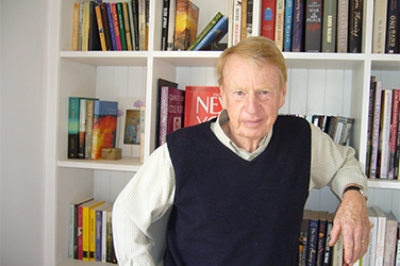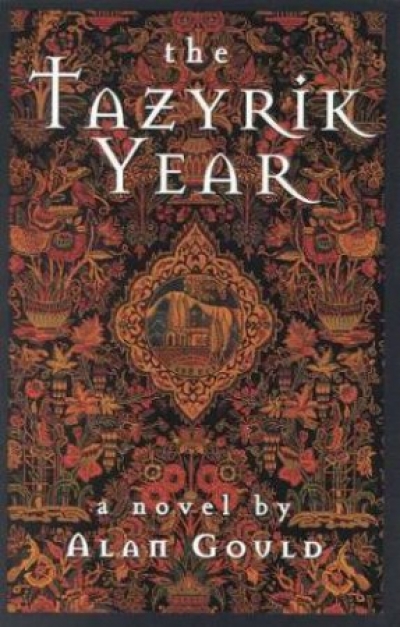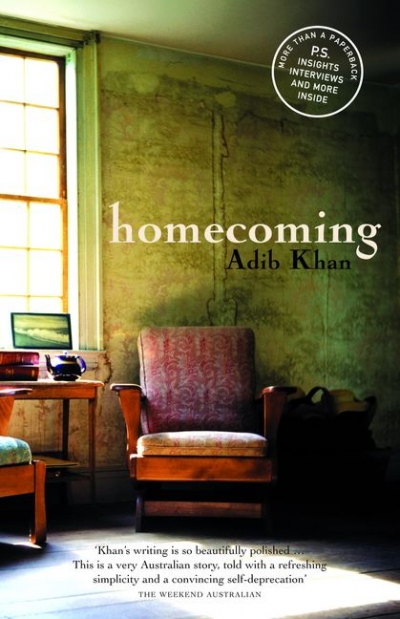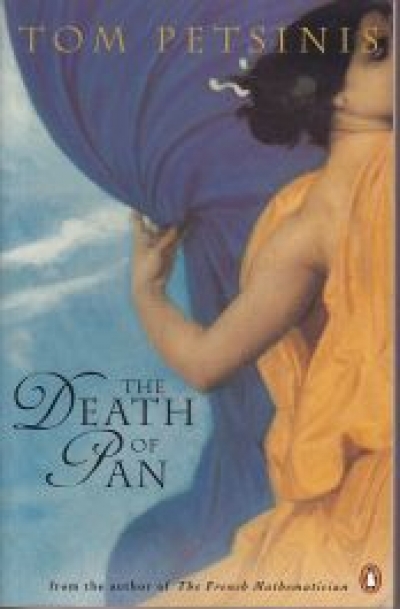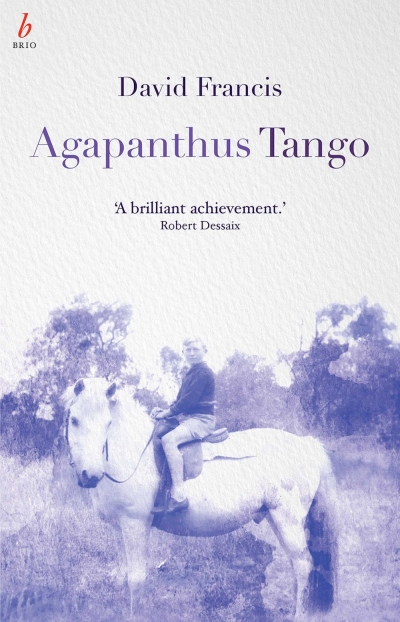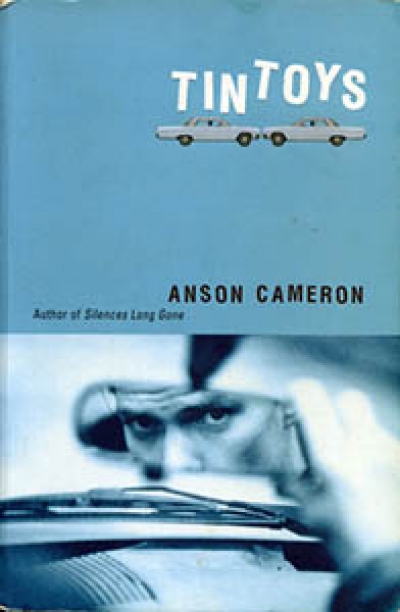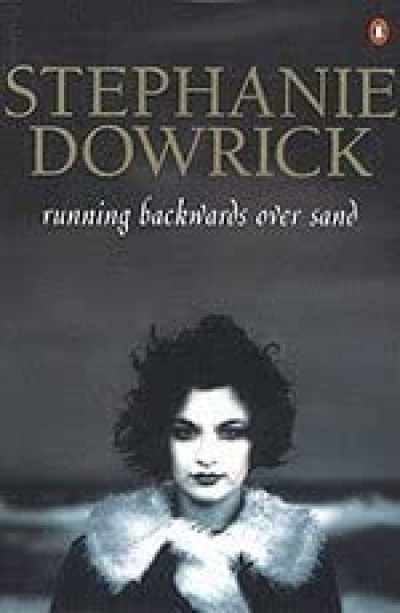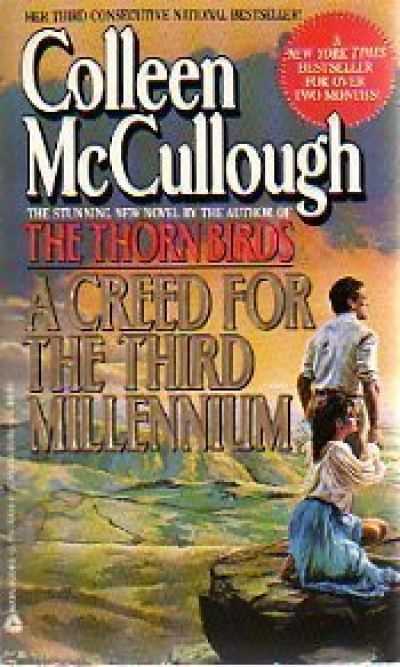The apocalypse might have seemed like pretty stimulating stuff when St John was writing about it, but these days. the post-Apocalyptic landscape is a well-trodden literary territory. This fact notwithstanding, Colleen McCullough’s latest screen-fodder epic, A Creed for the Third Millennium, goes back to the future one more time, to the year 2032, when mankind is under threat, not from nuclear war but from an incipient ice age. This is because the world’s glaciers have put on an uncharacteristic turn of speed, but curiously, this improbable and unexplained phenomenon is one of the few indications that the setting is the future – otherwise the impression one gains is that technology has stood still for fifty years. As is so often the case it is the Department of Environment, which is fostering a secret plan to find a man of charisma and use him as a messiah to bolster the flagging morale of the people of America. The person in charge of this program is Dr Judith Carriol, and the man eventually chosen for the job of messiah is Dr Joshua Christian. If the significance of those names goes unnoticed, it should be remarked that Dr Christian lives with, among others, his brothers, James and Andrew, and his sister Mary. McCullough is very much a proponent of the bludgeon approach to symbolism, as if the difficulties inherent in successfully rewriting the story of Christ’s preaching years weren’t great enough without this fatal tendency to make every allusion so painfully clear, and to drag the plot out in a similarly unsubtle fashion.
...
(read more)

